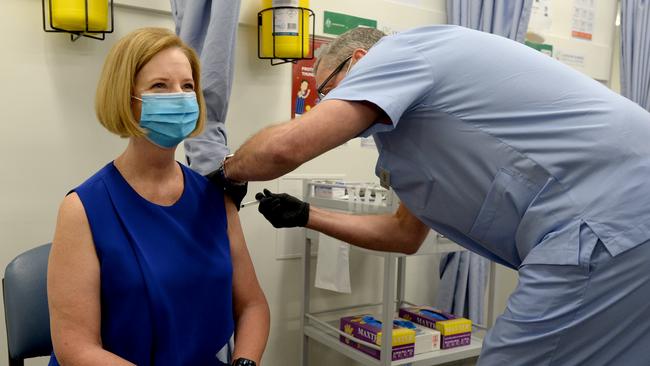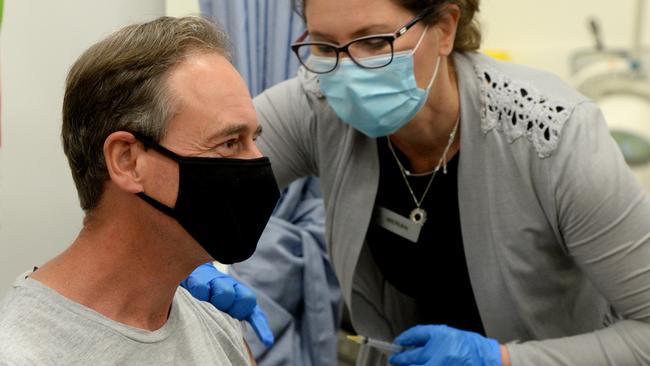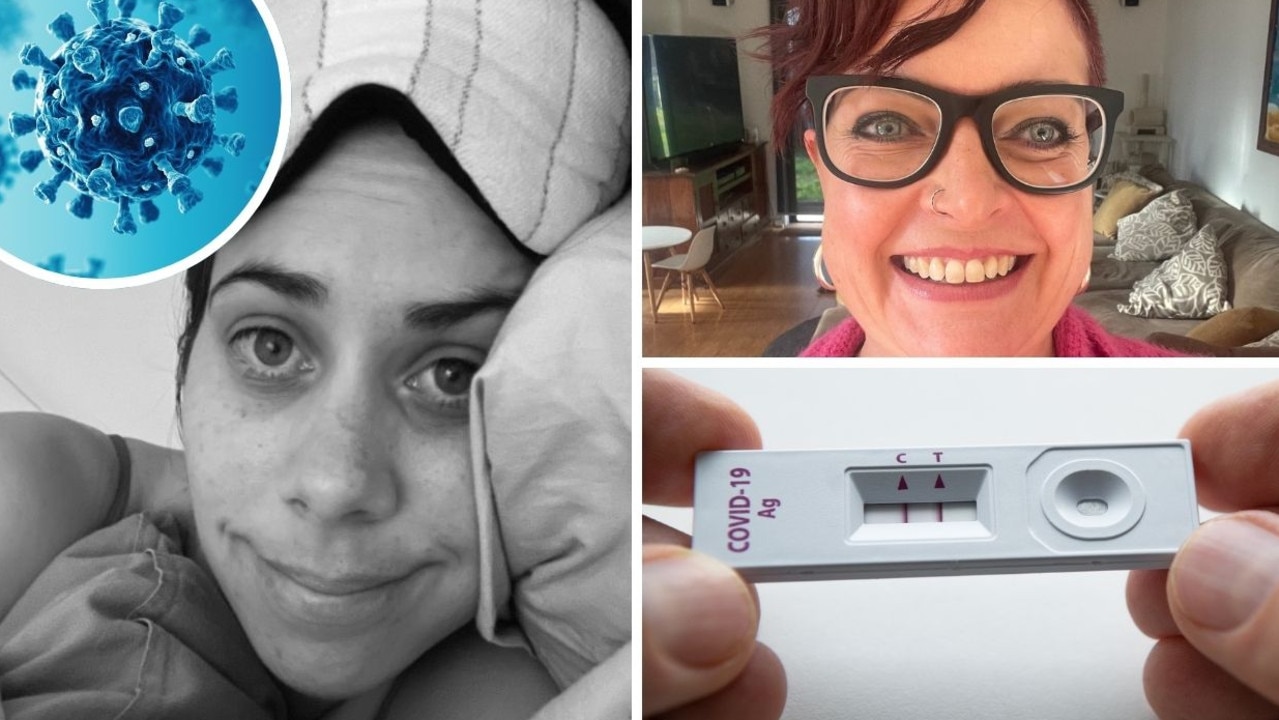Aged care deaths: No proven link to COVID jabs
A small number of aged care residents have died after receiving their COVID-19 vaccination, but their deaths are not linked.

Coronavirus
Don't miss out on the headlines from Coronavirus. Followed categories will be added to My News.
A small number of aged care residents died in the days after they received their COVID-19 vaccination but there is no evidence the deaths are linked.
There is no evidence the Pfizer vaccine caused the deaths and it is important to note that around 1000 residential aged care residents every week die under normal circumstances.
Australia’s Chief Medical Officer Professor Paul Kelly first revealed the deaths to health industry newsletter BioPharmaDispatch.
Professor Kelly later told News Corp a “handful” of aged care residents had died 24-72 hours after their received the vaccination in the first week of the rollout.
These deaths had been investigated by state and territory authorities, the vaccination provider and the Therapeutic Goods Administration, he said.
In addition Professor Kelly said he had personally examined the initial reports of the deaths.
“Each of them have another explanation, other than vaccine and none of them have had any sign of any adverse events, following the vaccine up until the time that they’ve been found to have passed away,” he told News Corp.

Many of those who died were suffering very long and complex illnesses and they were well before and after the vaccine but a day or two later were found after suffering a cardiac arrest in their bed, he said.
One person had developed a urinary tract infection and sepsis and it was in hospital “so they had a very clear alternative explanation,” he told News Corp.
The coroner is also able to investigate if it was thought the vaccine had played a role in the deaths, Professor Kelly said.
The nation’s top doctor denied there was any attempt at a cover up in the decision to exclude the deaths from the first adverse event reporting on the vaccine.
“I did actually question that myself when the first report came out,” Professor Kelly told News Corp.
“Of course it’s not a cover up,” he told News Corp.
“If there was any, any sniff, any suggestion that this was an event that was actually associated with a vaccine, or could possibly be associated with a vaccine in that initial investigation, then I would take it very seriously,” he said.
The reason the deaths had not been included in the adverse event reporting was that there was no evidence the vaccine caused the deaths, he said.
Professor Kelly said he will consider whether to include such deaths in future reporting along with an explanation about why they had been ruled not to be caused by the vaccine.

Health Minister Greg Hunt said the information had not been provided because the government did not want to create a false scare about the vaccine.
“If you had 10 per cent of your age care population (just to make it easy) vaccinated in one week and you’ve got 1000 people to pass away, 10 per cent of that 1000 would have been vaccinated,” he said.
The states and territories reviewed every event, he said.
The Therapeutic Goods Administration which is monitoring the vaccine safety issued its first weekly adverse report event on the COVID-19 vaccine last week.
It reveals there were 79 adverse events related to the vaccine in the first week of the rollout.
In the first week more than 33,700 doses of the vaccines were given to frontline health workers, quarantine staff and aged care residents.
This amounted to just 2.3 adverse events per 1000 doses administered.
Two younger health workers have so far been treated for anaphylactic reactions to the vaccine one on the Gold Coast and another in Darwin.
The most common reactions reported in the first week were: feeling faint, dizziness, headache, nausea, sweating.
A small number of elderly people in Norway died after receiving the vaccine earlier this year but these deaths too were found not to be caused by the jab.
Mr Hunt, who received a dose of the AstraZeneca vaccine yesterday, said he was feeling a “little tired” after his jab but this was not necessarily due to the vaccine.
Britain reports any deaths that occur within days of people receiving the vaccine even when authorities conclude the vaccine was not the cause of the death.
This suggests Australia is not following international process in keeping the information secret.
Between December 9 and February 22 there were 460 deaths that occurred after people were vaccinated the UK’s medicines watchdog said.
“The MHRA has received 212 UK reports of suspected ADRs to the Pfizer/BioNTech vaccine in which the patient died shortly after vaccination, 244 reports for the Oxford University/AstraZeneca vaccine and 4 where the brand of vaccine was unspecified,” it reports.
“Review of individual reports and patterns of reporting does not suggest the vaccine played a role in the death,” the agency said.
More Coverage
Originally published as Aged care deaths: No proven link to COVID jabs





